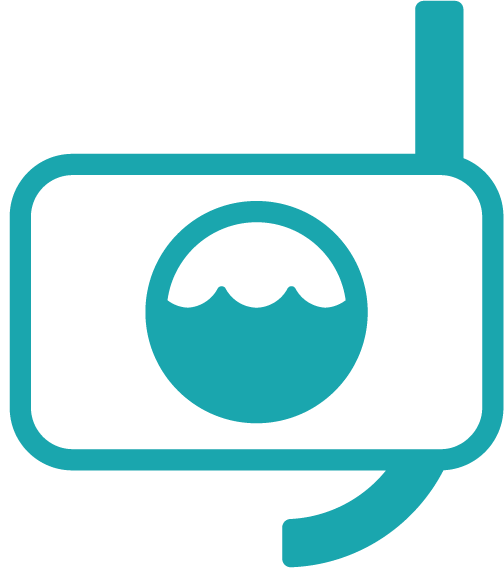Equilibrium
It was one of those summer evenings: the air was thick with humidity from the south wind, and the light rested over the water, as if time itself were taking a long, calming breath.
Standing on the beach I know by heart, drifting in the familiar waves of my usual sunset swim, I saw them—two dolphins, just meters from the shore, gliding effortlessly through the water. I stood still, charmed, suddenly aware that this place I call mine, my home, is their place too, their home.
We share it, even if we often forget, and it’s the pulsing heart of our planet. Every breath we take, every bite we gather, is deeply connected to the blue world beneath the water surface.
But overfishing, Co2 emissions, plastic - our relentless impact on the climate are dismantling a harmony that’s taken millennia to build.
It makes me think of the old fishermen—those who once took only what they needed, attuned to the quiet rhythms and voice of the sea. They may seem out of place now, but it’s us who’ve changed, disrupting the connection they once so deeply respected.
Their lesson is simple: the ocean is not a resource to be mined but is our life-giver, our guardian and weaver of dreams.
We don’t own the ocean; we belong to it, just as much as any creature in its depths.
If we want to keep calling it home, we must restore our equilibrium with the ocean—before the world we love and share fades away, just as dolphins vanishing into the waves.
Standing on the beach I know by heart, drifting in the familiar waves of my usual sunset swim, I saw them—two dolphins, just meters from the shore, gliding effortlessly through the water. I stood still, charmed, suddenly aware that this place I call mine, my home, is their place too, their home.
We share it, even if we often forget, and it’s the pulsing heart of our planet. Every breath we take, every bite we gather, is deeply connected to the blue world beneath the water surface.
But overfishing, Co2 emissions, plastic - our relentless impact on the climate are dismantling a harmony that’s taken millennia to build.
It makes me think of the old fishermen—those who once took only what they needed, attuned to the quiet rhythms and voice of the sea. They may seem out of place now, but it’s us who’ve changed, disrupting the connection they once so deeply respected.
Their lesson is simple: the ocean is not a resource to be mined but is our life-giver, our guardian and weaver of dreams.
We don’t own the ocean; we belong to it, just as much as any creature in its depths.
If we want to keep calling it home, we must restore our equilibrium with the ocean—before the world we love and share fades away, just as dolphins vanishing into the waves.
